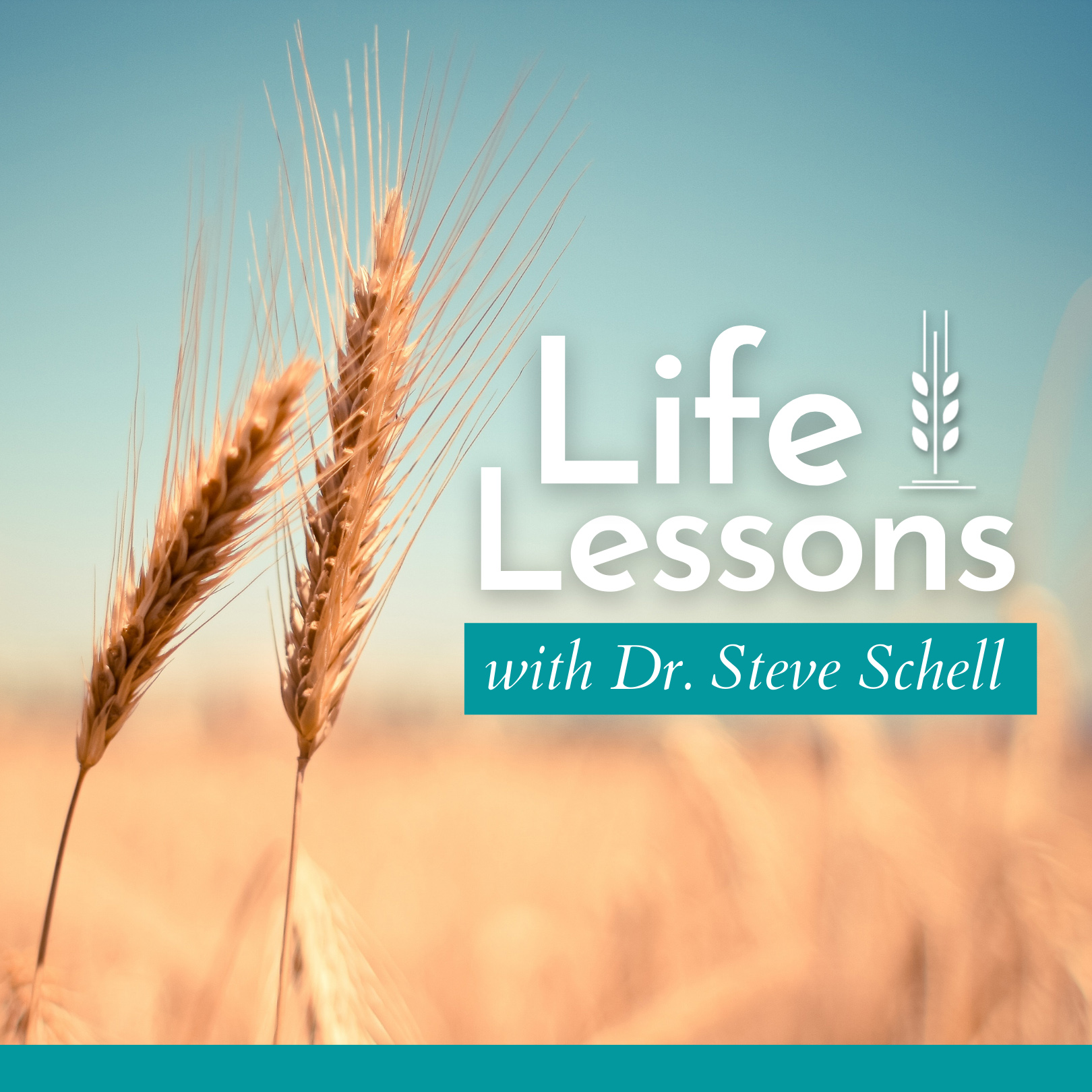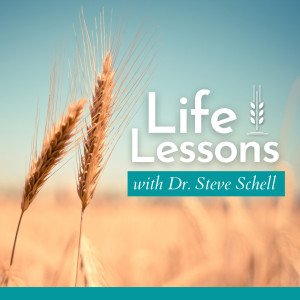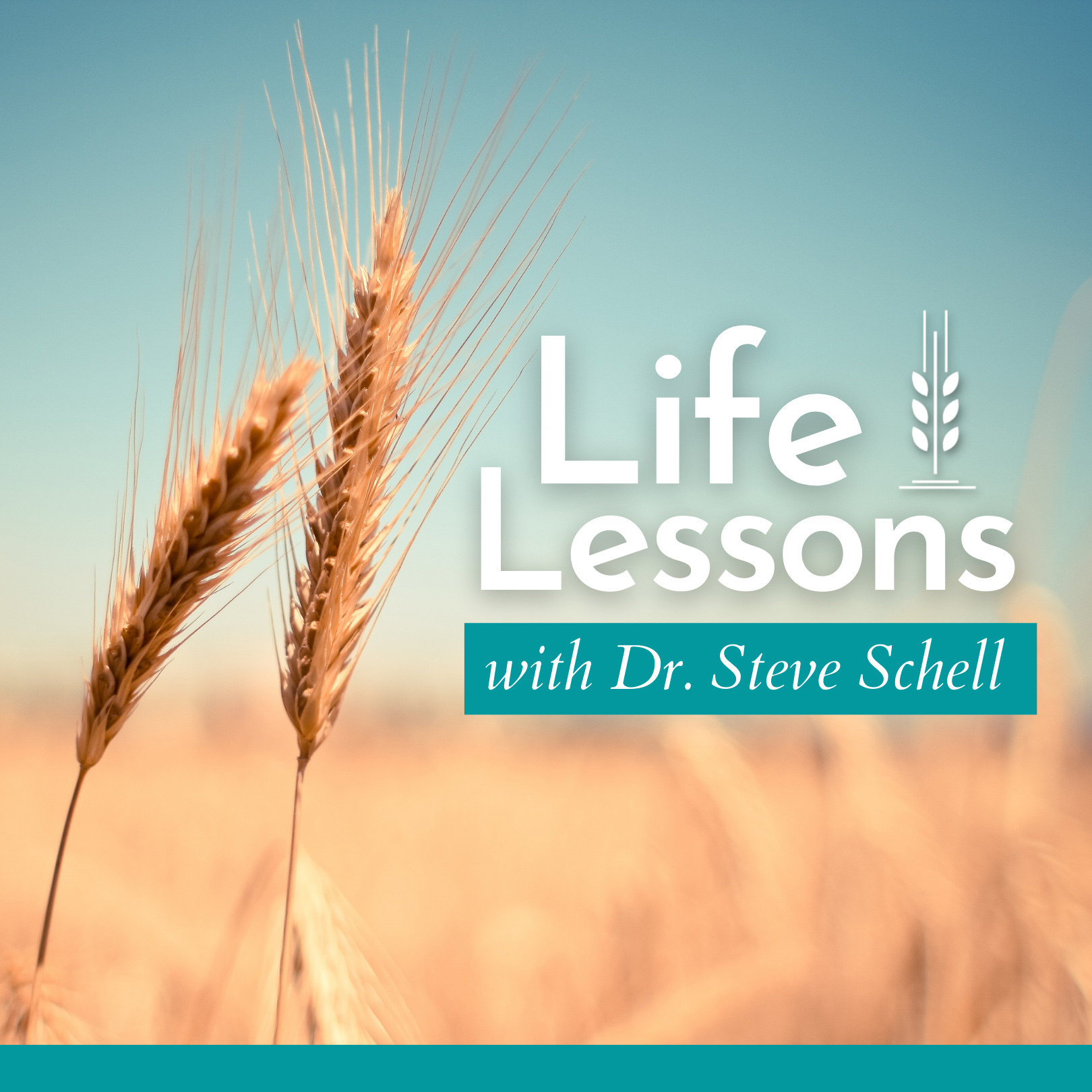
147.3K
Downloads
499
Episodes
Pastor Steve Schell comprehensively teaches through entire books of the Bible pulling out the deep, eternal truths in each section of Scripture without skipping over challenging passages. These sermons will help foster true discipleship for the committed Christian, both young and old.
Pastor Steve Schell comprehensively teaches through entire books of the Bible pulling out the deep, eternal truths in each section of Scripture without skipping over challenging passages. These sermons will help foster true discipleship for the committed Christian, both young and old.
Episodes

Thursday Sep 07, 2023
11 - Lord and Christ
Thursday Sep 07, 2023
Thursday Sep 07, 2023
If Jesus is Lord, why is there still so much rebellion? On that Pentecost morning Peter announced that Jesus is now seated at the Father’s right hand, and that the Father is bringing all of His enemies into submission to Him. Yet if we look around us we see a lot of spiritual warfare. The devil is still very active. The human race seems to be dividing and hardening in its attitudes. People are either for or against Him, with fewer and fewer undecided. There are places on earth where the number of people following Him is growing rapidly, but there are also places where an antichrist spirit appears to be taking hold. In our own culture there seems to be so much defiance of God’s moral standards, so much violence, so much dishonesty, so many false religions. And if Jesus is Lord, why does He allow all of this? Why doesn’t He force people to submit? The answer is that He will some day, but not yet. Believe it or not, all of this has been prophesied and is part of His plan. Yes, God has commanded all the world to surrender to His Son, but He still allows people to disobey that command. People can still choose to submit or rebel, and as troubled as these times may seem, millions are confessing Him as Lord every year. Yet the Bible tells us that as time goes on persecution and deception will increase, and fewer and fewer will believe. A day will come, somewhere in the future, when the last person willingly bows his or her knee. At that point the harvest will be complete and the Lord will return to the earth, and every knee will bow and every tongue will confess that Jesus Christ is Lord to the glory of God the Father (Php 2:10, 11). But we’re not there yet. Even though we see this hardening taking place in our own country, many are still willing to repent and believe. So our assignment is to labor in this harvest field while it is still “day.”
“We must work the works of Him who sent Me as long as it is day; night is coming when no one can work” (Jn 9:4).

Monday Sep 04, 2023
10 - Peter’s Boldness
Monday Sep 04, 2023
Monday Sep 04, 2023
It’s almost like there were two men named Peter. The one we meet in the gospels is good-hearted, but often says the wrong thing at the wrong time. Only a few weeks earlier, that one fearfully denied to a servant girl he even knew Jesus. But on this Pentecost morning we’re listening to a very different man. This one has the courage to stand in front of thousands and tell them in unmistakable terms that they are morally responsible for killing the Messiah. Neither afraid nor angry, he says to them, “…you nailed Him (to a cross) by the hand of godless men (Roman soldiers) and put Him to death…” His boldness is remarkable. Today, this one will be so effective at presenting the gospel, 3000 people will repent and be baptized. The fearful, clumsy man who often makes us chuckle when we read the gospels has been transformed into a fearless, eloquent spokesman for His Lord. What happened? What changed Peter? We want to know because we want that same boldness for ourselves. We want to be able to speak when it’s time to speak. We want to be able to pray for someone when it’s time to pray. We want the courage to go someplace and serve when we’re called to go. We don’t want fear holding us back. So let’s find out what happened to Peter, so it can happen to us too.

Thursday Aug 31, 2023
9 - They Shall Prophesy
Thursday Aug 31, 2023
Thursday Aug 31, 2023
People don’t have to learn to be spiritual because essentially every one of us is a spirit. This is because God made us in His own image. Please notice, I’m not talking yet about people who are born-again. All human beings are spiritual, by virtue of the way God made them. People actually have to be taught not to be spiritual. In the secular western society in which we live each of us is trained to deny our spiritual tendencies from the time we are infants. We soon learn to ignore, ridicule, and even fear our spiritual capacities. This has created an odd culture, very much out of step with much of the rest of the world. Huge portions of the planet consider the spiritual dimension to be as real as the physical dimension, and they engage it daily, one way or another. But not us. Our religious history has soured us, and set us at war with God. Frankly, the most secularizing influence of all has been protestant Christianity. It laughs at the notion that a person today might hear from God. It’s filled with doubt and suspicion when confronted by a healing, a deliverance, or any other supernatural manifestation. All has become rational, psychological, scientific, deductive. It looks for a rational explanation for everything, and this has been going on, and getting worse, for hundreds of years. So, it’s not easy, even for western Christians, to hear Peter quote from the prophet Joel, and realize that we’re included in this promise. When he says, “…and they shall prophesy,” he means us!

Monday Aug 28, 2023
8 - Spiritual Language
Monday Aug 28, 2023
Monday Aug 28, 2023
As we read this passage we’re watching a new era begin. The relationship between God’s Spirit and His people has changed forever. Never before had the Holy Spirit been able to live inside the sin-contaminated bodies of believers. Never before was such intimacy with God possible to all of God’s people, not just a special few. The death of Jesus Christ on the cross, and His resurrection from the dead and His ascension into heaven radically changed things. His death actually cleansed our bodies and made them a suitable dwelling place for God. Now He is able to live inside us, and as you might expect when He arrives it produces some remarkable changes.
The first thing that happened on that Day of Pentecost was that each disciple began speaking in a language he or she had never learned. Luke says they spoke words which the Spirit gave them to speak out. Never before had there been such a miracle. There are numerous examples in the Old Testament of the Spirit coming upon people with the result that they spoke out prophetically in their own language, but never in a new, unlearned language. Why would God do such a thing?
Many conflicting answers have been given to this question, but Peter actually gives us his own, inspired, explanation. He says it’s a sign of the last days. He says it’s a fulfillment of Joel’s prophecy. Let’s look more closely at this miracle of speaking in other languages.

Thursday Aug 24, 2023
7 - The Promise Arrives
Thursday Aug 24, 2023
Thursday Aug 24, 2023
So this is what Jesus meant when He spoke of the “promise of the Father” (Ac 1:4). Wow! What an amazing event! But, frankly, it’s so amazing that if I don’t understand what’s happening to these people I can easily end up in the same condition as the watching multitude: amazed and bewildered, which is to say, confused and frightened. Luke’s description of that Pentecost morning raises a lot of questions—questions I need answered if I’m to step forward and seek this baptism of the Holy Spirit for myself. So here’s what we’ll do today. First, we’ll examine the passage carefully to see what really took place. Then we’ll identify which promise was being fulfilled. Then we’ll ask the practical questions of what does God do to a person when they receive this gift. Then, let’s be very personal and ask what can I expect will happen to me if I receive it. And finally, let’s ask that nagging question that tends to linger in the back of our minds, can I really expect that God would give that same gift to me?
What happened?

Monday Aug 21, 2023
6 - Replacing Judas
Monday Aug 21, 2023
Monday Aug 21, 2023
Have you ever wondered why Jesus chose Judas? It was a choice He made after intense prayer. Luke tells us, “He went off to the mountain to pray, and He spent the whole night in prayer to God. And when day came, He called His disciples to Him and chose twelve of them, whom He also named apostles (Lk 6:12-16). Eleven of these worked out very well, but one ended badly. Does that mean a mistake was made? Did Jesus miss hearing God correctly on one name? Or, did God guide Him to select Judas so there would be someone among the disciples evil enough to betray Him?
This is much more than an academic question, because who among us has not earnestly prayed for guidance and chosen someone, believing we were following God’s will, only to have that person betray us, or fail miserably in some other way? And when that happens it raises deep questions about God. If He knows the future, and He does, then why would He lead us to choose people who turn out badly? Why didn’t Jesus choose someone else? Why do we at times make such terrible mistakes? Obviously, there’s no simple answer that applies to every situation, but the example of Judas does teach us a lot about God’s guidance if we’re willing to hear it. One of the men Jesus chose appears to have been an awful choice and this gathering of believers we’re reading about here is having to go through the process of replacing him.

Thursday Aug 17, 2023
5 - Waiting For Pentecost
Thursday Aug 17, 2023
Thursday Aug 17, 2023
When God promises us something He’s revealing His heart. He’s showing us what He wants to do in our lives, but that doesn’t necessarily mean it will actually take place. When God gives us something it’s ours, but that doesn’t necessarily mean we will actually receive it. There are forces within and without that can prevent us from receiving what God has given us.
Not understanding this fact causes a lot of confusion. There are many people who have received prophetic promises which apparently didn’t come true. Of course, it’s possible some of these were produced by wishful thinking rather than divine inspiration, so in some cases the word itself wasn’t authentic. But there are also clear Biblical promises concerning God’s will for all of us that never seem to take place. And there’s not one simple answer as to why. But one reason many of us go so long without receiving, is that we haven’t learned to wait. The problem is we think waiting is, well…just waiting. Which is to say, going on with life while keeping one eye open to see if God actually comes through on what He said. After all, He knows where we live so when He decides to do it, He will, right?
But surprisingly that’s not true. There’s much more to waiting on God than that. Promises and blessings have to be pursued, fought for, held on to. Often our own hearts have to be changed before we can receive. Some might hear this as trying to force God to do something He doesn’t want to do, as disrespectful, as though such aggression is trying to push God to do something He doesn’t want to do. But that’s where the confusion lies. This kind of waiting isn’t presumption, it’s faith. It doesn’t offend Him, it pleases Him. He loves it when His children hear Him promise something, and won’t be denied. He loves it when we lay hold of Him and won’t let go. He loves it when we set aside the distractions of the world, and wait till He shows up. Just like the disciples waited for Pentecost.
What does Luke say?

Monday Aug 14, 2023
4 - Going to Heaven
Monday Aug 14, 2023
Monday Aug 14, 2023
There is a place called heaven. It’s a real place, not some “fairy-land” tucked away in another “dimension.” Way too much philosophical speculation has gone on here, until some descriptions of heaven begin to sound more like the land of Oz than the beautiful place the Bible describes. Yes, of course, it’s a spiritual place, but we need to keep in mind that the spiritual realm is real, not imaginary. Every physical thing in our universe was created by the spiritual realm, not vice versa. If you will, the spiritual realm is more real than the physical, not less. And heaven is a real place, and Jesus is there now in a glorious, imperishable body which is so solid you can still touch His scars, and so human you can eat a meal with Him.
Being sure of this makes all the difference in the world. We can endure almost anything if we’re certain what’s waiting for us on the other side. It puts both the pleasures and sufferings of this life into perspective. It makes the purpose of life clear as crystal. It’s all about going there and taking others with us.

Thursday Aug 10, 2023
3 - Preparing to Leave
Thursday Aug 10, 2023
Thursday Aug 10, 2023
Between his gospel and the Book of Acts, Luke has given us enough information to recreate in our minds a rough sketch of the Lord’s final day with His disciples. When we go back to the carefully chosen words Luke uses, a beautiful picture emerges of our risen Lord preparing to leave. We know what He talked about during the 40 days following His resurrection, and we know what He said, and probably where He said it, on this final day before he ascended. Who among us wouldn’t give almost anything to have been there with those disciples listening to Him and then watching Him rise into heaven? Today we’ll find, as we will so often during our study of Acts, gratitude welling up within us toward this Greek physician (Col 4:14) who did the research necessary to let us slip into the back of those gatherings to listen and watch.

Monday Aug 07, 2023
2 - Theophilus
Monday Aug 07, 2023
Monday Aug 07, 2023
How far did God have to go to reach you? Some of us came to Him quickly and easily as children, others not until late in life. But taking that first step toward God was not the end of the matter. However and whenever we came to Him, as life progressed, we found that holding on to Him is a challenge. Events happened that caused us to question God’s goodness or power. Doubts arose about the historical truth of what we had embraced. People argued with us or ridiculed us for our childlike trust until we felt foolish for believing things we couldn’t “prove.” And if that weren’t enough, at some point we found our obedience to Christ got us in trouble. To remain loyal to Him cost us something that mattered to us. We had to let go of something or someone in order to hold on to Him. And the more we became aware of the world’s genuine hostility toward our faith, the more we understood that real persecution might be a price we’d have to pay. So, our walk with Christ not only started with a choice to believe, it has required many choices to believe along the way.
These first few verses of Acts remind us that God doesn’t abandon us to struggle alone with these issues. His Holy Spirit is always with us to refresh our faith, but He also sends us people to come after us when we wander and stand beside us when we’re weak. Amazingly, Luke wrote the Book of Acts to strengthen the faith of one man.
